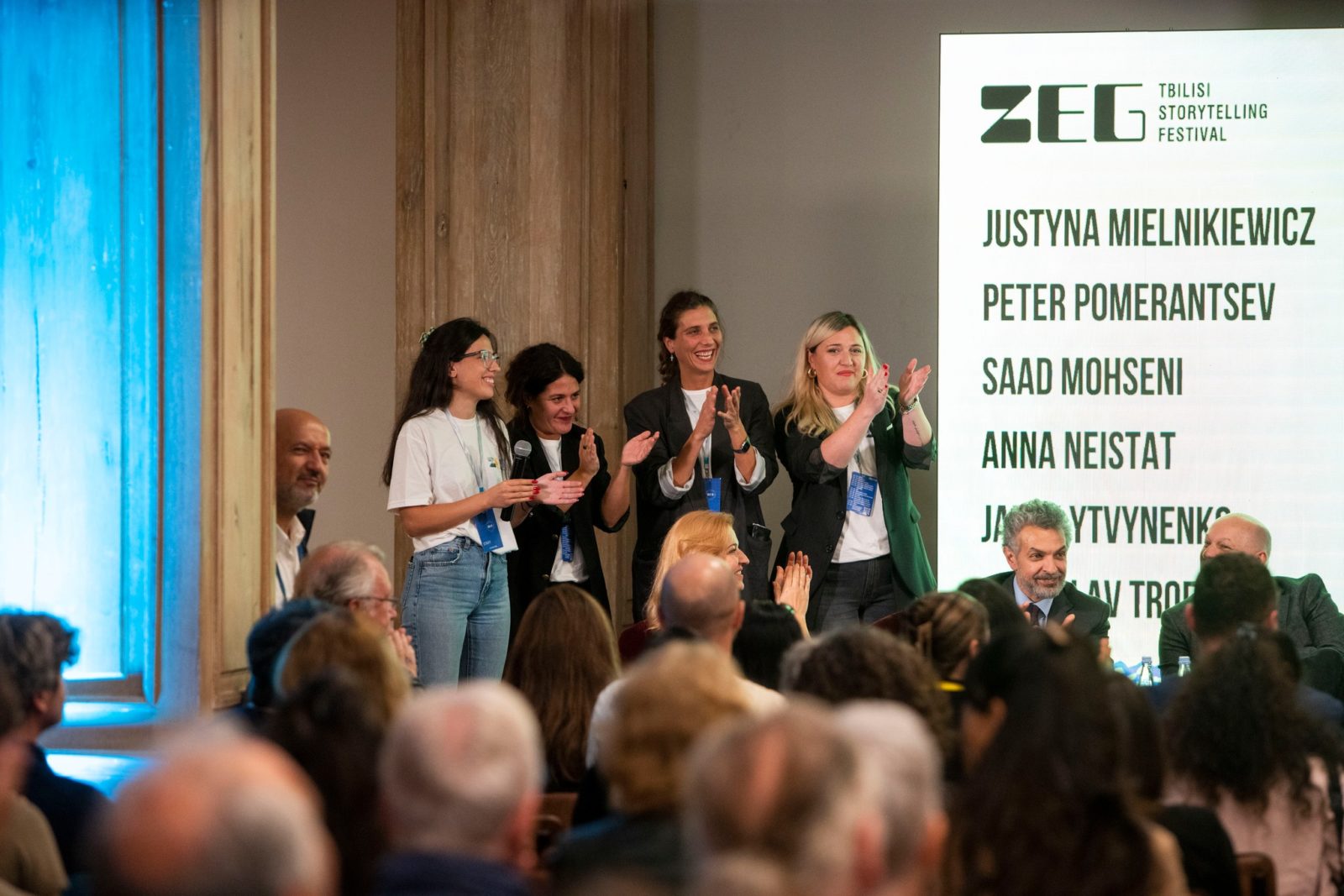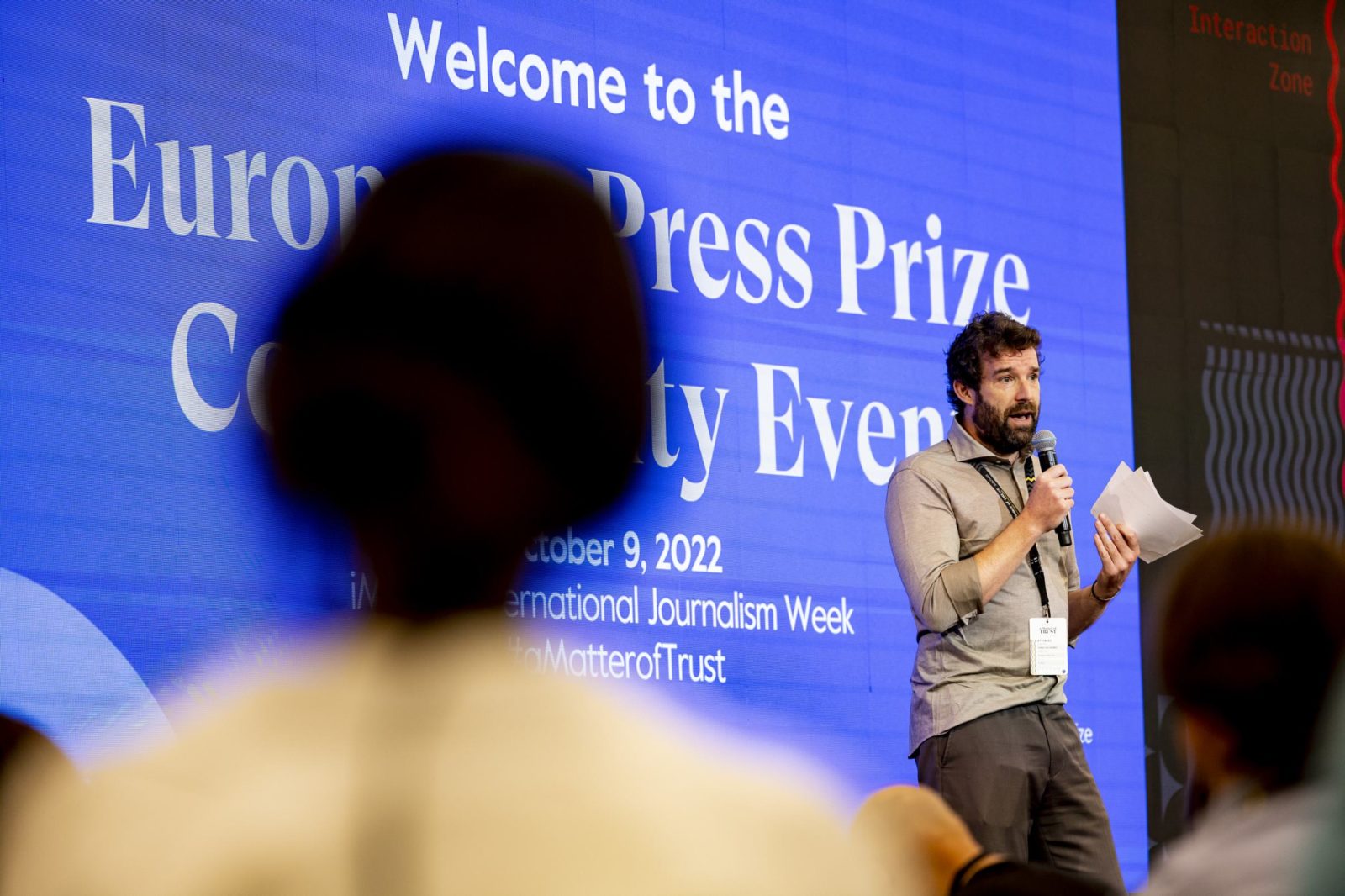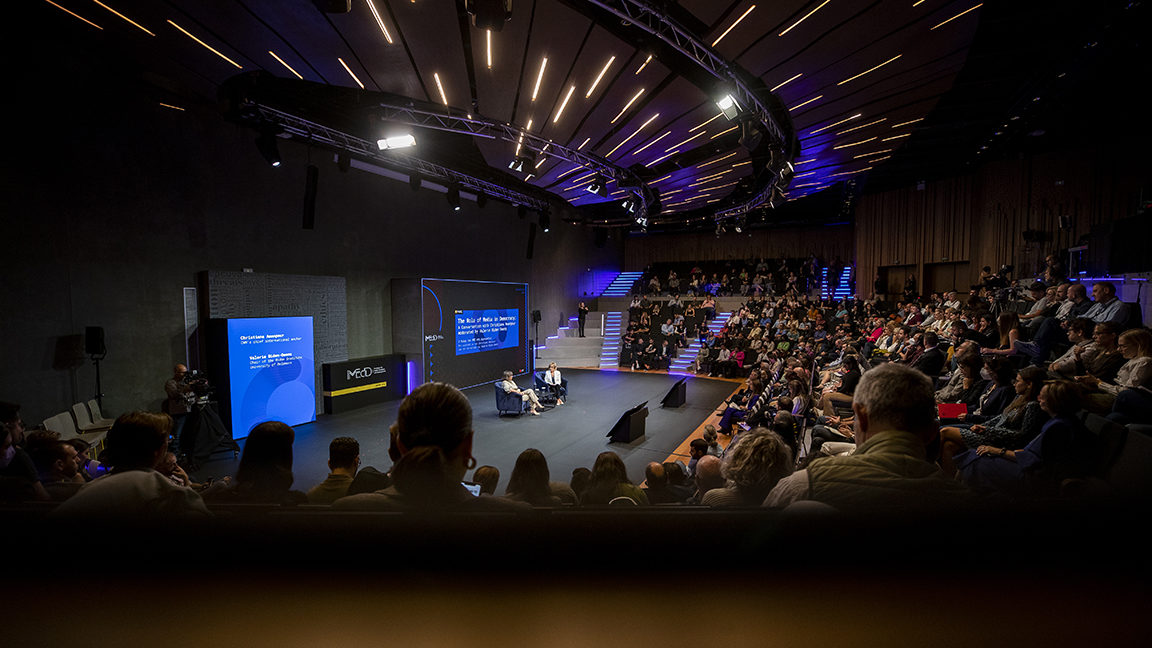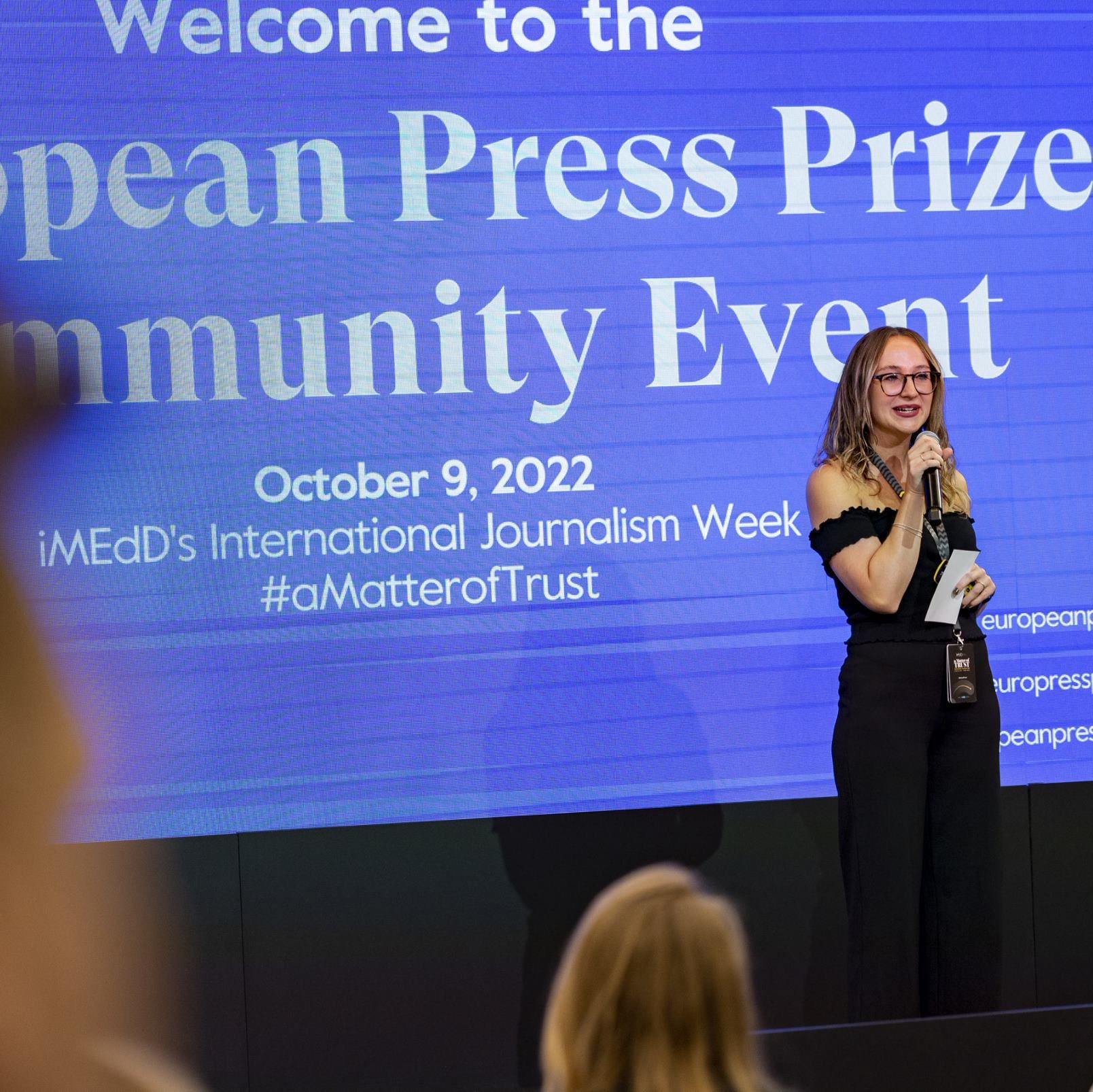The European Press Prize Award Ceremony 2023: In Tbilisi with ZEG
The European Press Prize is delighted to announce that its annual Award Ceremony will, for the year 2023, be held on June 9 in the capital of Georgia, Tbilisi, in collaboration with ZEG Tbilisi Storytelling Festival.

Staying true to our mission of supporting excellence in journalism and upholding its values around Europe, we celebrate our Award Ceremony in a different European city every year. This way, journalists from all over the continent – and beyond – have the opportunity to meet in a different cultural and socio-economic context, and the European Press Prize Community can grow, and become ever-stronger.
After Berlin in 2021 – a Ceremony held in September because of the pandemic – and Madrid in 2022, we are delighted to move East, to Georgia, and be guests of its capital Tbilisi.
The Award Ceremony 2023 will be held on June 9, where we will be partnering up with ZEG Tbilisi Storytelling Festival, an international event, organised by Coda Story and Impact Hub Tbilisi, dedicated to the power of stories in all their different forms. Our Community of Laureates, Members, Board members, our Panel of Judges and our Preparatory Committee members are among the guests that will attend our Award Ceremony. It will be a day made of discussions on the state of journalism, which will culminate with the granting of our annual Awards.

As Thomas van Neerbos, Director of the European Press Prize, explained: “It is a wonderful opportunity for us to bring the European Press Prize Award Ceremony to the beautiful city of Tbilisi, as part of ZEG Festival. Georgia is one of Europe’s crossroads of cultures and stories, in a moment in which many of these crossroads are under pressure for several reasons. Excellent journalism, as we’ve seen over the years at the Press Prize, is often created under pressure and because of some kind of pressure, therefore Tbilisi is where we need and want to be!”
“Zeg is the region’s first storytelling festival that was created in 2019 by Coda Story and Impact Hub Tbilisi. We are thrilled to be teaming up with the European Press Prize to host journalists who are telling some of Europe’s most important stories in Tbilisi,” said Natalia Antelava, co-founder of Coda and organizer of ZEG.
The new Migration Award
In Tbilisi, we will, hopefully, also inaugurate a sixth Award, the first thematic Award in European Press Prize history: the Migration Journalism Award. A call for funding to support this category is open, and can be found at this link.
If you are interested in discussing partnership possibilities, please reach out to our Contracts & Partner Lead Jennifer Athanasiou-Prins at jennifer[at]europeanpressprize.com.
Charting the course: The International Journalism Week and our Community Event
Great things start with a simple word, a word that was repeated countless times last week, in Athens, at the International Journalism Week: A Matter of Trust. A word that is gold, because it speaks of things that are bigger than the will of a single person: a collaboration, a profession, a community.
This word is “we”.

Everything starts with that simple word every time, because one person, alone, can hardly achieve change. We know that behind every great feat there is a support system that helps with many things: asking the right questions, questioning assumptions, providing support, making it all doable or, even better, fun to do.
This is what has been the greatest success of the International Journalism Week: A Matter of Trust, organised by iMEdD in Athens from 5 to 9 October. Providing a “we” to journalists from Greece and far beyond. Bringing them together and giving them a space to discuss, see faces they already knew and meet new ones, ask questions, seek answers and above all inspire each other.
That pronoun became the Pole Star for a week of intense conversations, designed to chart the course for a journey that, every journalist soon finds out, can be dangerous and subject to the whims of the weather – of the divinities of political power, technology, and the greatest god of all, the public.
And when you travel in the open sea like Odysseus, the “we,” your crew, is all that matters.
We were there, with the Prize Community
In Athens, on Day 5 of the International Journalism Week, we held our first Community Event. We were given the great chance to involve the journalists that are part of our community in the “we” that iMEdD created.
In our design, this was the perfect opportunity to bring our members, board, Laureates, PrepCom, together for a day of workshops and discussions on journalism.
A great place to see known faces again, but above all to let the community grow, introducing our family to the iMEdD’s network, so they could exchange ideas, get inspired, and maybe be excited about the possibility of new projects.
This is the way
During every journey, there must be a moment of reflection, or reassessment of what was done. We talk about what didn’t work – that we will abandon – and what brought us where we are – that we will keep, and bet on.
During this International Journalism Week, since Day 1, we attended talks, roundtables, workshops, that showed us exactly this. That allowed us to form an idea of what can bring the journalistic profession to its next stage and deliver it to always-new audiences. The challenges are many, but the energy was far stronger than the dismay for the setbacks, the threats, and the violence this profession is subject to.
It is, for journalism more than for other professions, a matter of bridging tradition and innovation, embracing change without losing sight of the miles already behind us.
A good example of this – just one, but there were many others – are two women, Tina Xu and Anneleen Ophoff: the first is a multimedia journalist, and the second the editor-in-chief of Are We Europe, a full-paper magazine. To Tina, “the future of journalism is immersive. Journalism is more and more expected to have an authentic voice.” Anneleen explained that “76% of European youth wish they could spend less time on screen, and we have an answer for that: print.”
They were there, on the same stage, looking at journalism in a different way but, in fact, charting the same journey.
This is the way, and “we” travel together, they would say.
We would like to thank iMEdD for their support to the European Press Prize, and for having included us in their International Journalism Week. You can find many of the sessions of the conference at this link.
A special thank you goes also to The Guardian Foundation, Arena for Journalism – and the Cities for Rent project – to Are We Europe, Hostwriter and Unbias The News, for the workshops they held during our Community Event.










